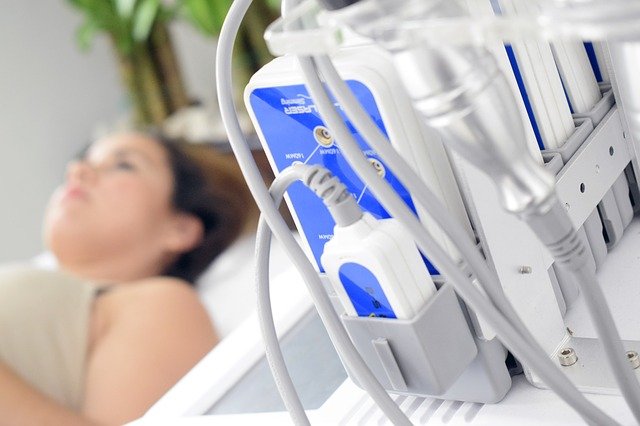9 Science Backed Ashwagandha Benefits for Women
Ashwagandha Benefits
Ashwagandha, or Withania somnifera, is an herb native to Asia and Africa. Also called “Indian ginseng,” it’s been used in traditional Indian Ayurvedic medicine for thousands of years to ease pain and inflammation, treat insomnia, and boost nutrition, along with other conditions.
Ashwagandha is also considered an adaptogen. That means it helps your body better manage stress. Much of the research on ashwagandha’s benefits has been done on animals, so experts can’t say for sure how well it works. But here are some things this herbal supplement might help with.
Stress and Anxiety
There are a few human studies on its stress-relieving properties. A review of five studies found the supplement helped lower stress levels. One study showed adults who took 300 milligrams of ashwagandha daily for 8 weeks had lower levels of anxiety and fatigue. They also had an easier time concentrating than adults who did psychotherapy, or talk therapy, for the same amount of time. In another study, adults who took 300 milligrams of ashwagandha daily for 8 weeks had less stress and fewer stress-related food cravings than adults who took a placebo (fake pill) instead.
Cancer
Several studies have shown ashwagandha has compounds that may help fight certain types of cancer. Researchers aren’t sure how, but extracts in the herb seem to limit the activity of cancer cells in breast, colon, prostate, ovarian, lung, and brain cancers. It does the same for thyroid, gastrointestinal, cervix, and skin (melanoma) cancers. Ashwagandha is considered safe to use with traditional cancer treatments like chemotherapy and radiation. Experts say it may ease some side effects, like a weak immune system. But most of these studies have been done on cancer cells or animals with cancer.
Neurodegenerative Diseases
Studies show ashwagandha can slow, stop, and possibly reverse certain types of nerve cell damage. That’s what leads to diseases like Alzheimer’s, Parkinson’s, and Huntington’s. Still, almost all of the studies on ashwagandha and nerve cell damage in the brain have been done on animals or animal cells.
Arthritis
One study found ashwagandha eased arthritis-related symptoms like pain and joint swelling in people with rheumatoid arthritis. Animal studies have shown it may soothe inflammation.
Exercise Performance
Another study found healthy young adults who took 500 milligrams of ashwagandha daily for 8 weeks had more speed and strength during exercise than people who took a placebo. They also breathed better, taking in more oxygen.
Male Infertility
One small study found infertile men who took 5 grams of ashwagandha daily for 90 days had a higher sperm count. The health of their sperm improved, too.
Sleep
One study in humans showed taking 300 milligrams of the herb two times a day improved sleep. Another study on animals found that the triethylene glycol in ashwagandha is what brings sleep on. But more research is needed.
Before You Take Ashwagandha
Talk to your doctor before taking any herbal supplement. They could cause problems with other medications you’re taking. And they may not be safe if you’re pregnant or have certain health conditions.
Show Sources
African Journal of Traditional, Complimentary, and Alternative Medicine: “An Overview on Ashwagandha: A Rasayana (Rejuvenator) of Ayurveda.”
PLoS One: “Naturopathic care for anxiety: a randomized controlled trial,” “Triethylene glycol, an active component of Ashwagandha (Withania somnifera) leaves, is responsible for sleep induction.”
Mayo Clinic: “Herbal supplements: What to know before you buy.”
Journal of Complementary and Integrative Medicine: “Effect of Withania somnifera (Ashwagandha) root extract on amelioration of oxidative stress and autoantibodies production in collagen-induced arthritic rats.”
Indian Journal of Medical Research: “Efficacy & safety evaluation of Ayurvedic treatment (Ashwagandha powder & Sidh Makardhwaj) in rheumatoid arthritis patients: a pilot prospective study.”
Journal of Alternative and Complimentary Medicine: “An Alternative Treatment for Anxiety: A Systematic Review of Human Trial Results Reported for the Ayurvedic Herb Ashwagandha (Withania somnifera).”
Andrologia: “Comparative evaluation of the effects of Withania somnifera with pentoxifylline on the sperm parameters in idiopathic male infertility: A triple-blind randomised clinical trial.”
Journal of Evidence-Based Complementary and Alternative Medicine: “Body Weight Management in Adults Under Chronic Stress Through Treatment With Ashwagandha Root Extract: A Double-Blind, Randomized, Placebo-Controlled Trial.”
The Cureus Journal of Medicine: “Adaptogenic and Anxiolytic Effects of Ashwagandha Root Extract in Healthy Adults: A Double-blind, Randomized, Placebo-controlled Clinical Study,” “Efficacy and Safety of Ashwagandha (Withania somnifera) Root Extract in Insomnia and Anxiety: A Double-blind, Randomized, Placebo-controlled Study.”
FDA: “Questions and Answers on Dietary Supplements.”
International Journal of Ayurveda Research: “Effects of Withania somnifera (Ashwagandha) and Terminalia arjuna (Arjuna) on physical performance and cardiorespiratory endurance in healthy young adults.”
The University of Texas at El Paso: “Herbal safety.”
9 Science Backed Ashwagandha Benefits for Women
We’ve already looked at some of the amazing proven benefits of Ashwagandha for men and now we’re going to discuss some useful research-backed Ashwagandha benefits for women.

1. Can help improve sexual dysfunction
In a 2015 study, 50 female participants (age 21-50) with Female Sexual Dysfunction (FSD) were selected and divided into two groups: treatment and placebo.
The treatment group received one 300 mg Ashwagandha root extract capsule twice daily for 8 weeks. The placebo group received starch powder in capsule form. [ 1 ]
Improvement in sexual function was assessed using two questionnaires (FSFI and FSDS) and by the number of total and successful sexual encounters. These were measured at baseline and at the 4th and 8th week after treatment.
What they found out:
- Desire scores increased after Ashwagandha treatment.
- Improvement in arousal scores at 4th and 8th week is noticeably higher in the Ashwagandha group than the placebo group.
- Treatment group’s lubrication scores increased by 43% at 4th week and 56% at 8th week.
- A higher improvement in orgasm and sexual satisfaction was observed in the group that took Ashwagandha.
- Lower sexual distress due to Ashwagandha especially at the 8th week of treatment.
- The number of successful sexual encounters is higher in the Ashwagandha treatment group compared to the control group.
Bottom line: Ashwagandha capsules can help treat women with Female Sexual Dysfunction (FSD) without causing any adverse effects.
2. Can improve thyroid function

In 1999, An animal study investigated the effect of Ashwagandha root extract in improving thyroid function. The researchers administered Ashwagandha root extract to female mice for 20 days. Results show that the extract significantly increased T4 levels. In addition, there was also an increase in liver enzyme activities involved in thyroid hormone metabolism after Ashwagandha treatment [ 2 ].
A safety study done in 2014 reported that Ashwagandha extract given at a 500 mg dose per day may cause an increase in thyroxine levels, thus should be used with caution in people with hyperthyroidism. However, the study also concluded that it may be useful for patients with hypothyroidism as it was found to normalize the thyroid levels of one patient [ 3 ].
A recently published study supports the initial finding that Ashwagandha is beneficial for patients with hypothyroidism as summarized below:
Study: 50 participants (age 18-50 years) diagnosed with subclinical hypothyroidism were randomly allocated to two groups.
The first group received a total of 600 mg Ashwagandha root extract daily while the control group received starch capsules for 8 weeks. [ 4 ]
Thyroid hormones TSH, T3, and T4 were measured at baseline and at 8 weeks after treatment.
Result: After 8 weeks of treatment with Ashwagandha, TSH, T3, and T4 achieved normal levels. In addition, only 1 out of 25 subjects who took Ashwagandha reported of mild and temporary adverse effect.
Bottom line: Ashwagandha extract capsules may be useful for people with hypothyroidism, although more and larger studies are needed to ensure its effectiveness and safety.
Treatment improves TSH, T3, and T4 and has the potential to affect liver enzymes responsible for thyroid hormone metabolism.
However, increase in thyroid hormones may be harmful to patients with hyperthyroidism. Thus, if you’re planning to use Ashwagandha, it is better to get tested for thyroid function first and for overall safety.
3. May protect against breast cancer

In-vitro and animal studies provided evidence that Ashwagandha extract, particularly its component withaferin A, may be useful for breast cancer treatment. These studies concluded that Ashwagandha:
- Inhibits tumor activity by affecting cell division in certain breast cancer types such as ER+, ER-, and triple-negative cancers [ 5 , 6 , 7 , 8 ].
- Prevents cancer from spreading to other body parts by affecting its invasiveness and metastasis capacity [ 9 ].
However, as to date, only one human study has been published which mainly determines the effectiveness of Ashwagandha in improving fatigue and quality of life in breast cancer patients undergoing chemotherapy.
Study: 100 breast cancer patients divided were into two groups: Chemotherapy + Ashwagandha or Chemotherapy alone. [ 10 ]
Patients in the Ashwagandha group were asked to take 4 capsules every 8 hours (total 2 g/day) throughout the chemotherapy treatment (6 cycles).
The quality of life and fatigue scores were measured at baseline, during and after chemotherapy treatment.
- Fatigue score was significantly lower in the Ashwagandha group.
- Ashwagandha group had an overall improvement in the quality of life.
- Symptoms caused by chemotherapy are lower in the Ashwagandha group. Some of these include insomnia, appetite loss, constipation, and pain.
Bottom line: If you’re undergoing chemotherapy for breast cancer, taking Ashwagandha capsules daily can help alleviate some side effects of the chemo drugs. On top of that, your quality of life during and after your chemotherapy sessions can be greatly improved.
Although several studies provided evidence regarding the anti-tumor and anti-metastasis capability of Ashwagandha, there aren’t enough human trial studies to validate their results. Therefore, do not attempt to replace Ashwagandha as an alternative to Chemotherapy.
All natural anti-cancer treatments should be used on the side with Chemotherapy and never as a replacement as it can put your life at great risk.
4. Age gracefully with Ashwagandha

An excessive amount of free radicals can lead to DNA damage, thus accelerating the aging process of the body [ 11 ]. Antioxidants protect the body against free radical damage.
Ashwagandha is a rich source of antioxidants which can fight off free radicals in the body and may induce a protective effect on the age-induced spinal cord damage [ 12 , 13 ].
The extract also ameliorates the increase in advanced glycation end products (AGE) which has been proven to have a role in the development of various age-related diseases [ 14 ].
One recent human study also reveals that two proteins are downregulated by aging and Ashwagandha treatment counteracted its effects in-vitro. Treatment with Ashwagandha can, therefore, promote healthy aging based on these effects [ 16 ]
As to date, only one clinical trial has been published on the effect of Ashwagandha on aging:
Study: 30 subjects age 18-45 years old were randomly allocated to 3 treatment groups: Ashwagandha, Guduchi and placebo groups [ 17 ].
Each participant was asked to take 1 capsule (500 mg) of Ashwagandha root extract twice a day for 6 months. The same protocol was implemented for the other two groups.
Blood parameters and antioxidant activity were measured at baseline and at 180th day of treatment.
Results: The authors concluded that Ashwagandha prevents oxidative stress and premature aging by increasing superoxide dismutase (SOD) activity and decreasing malondialdehyde (MDA) activity.
Bottom line: Ashwagandha is a good source of antioxidant which can help prevent premature aging as well as protect you from age-related diseases.
5. Can provide relief from stress and anxiety

Study: A systematic review of five human trials showing the effectiveness of Ashwagandha in treating anxiety and stress.
Ashwagandha extract ranging from 125 to 1000 mg per day was given in four studies while one study utilized 12,000 mg/day of granules from Ashwagandha dried root powder. Patients were followed up for 42 to 84 days [ 18 ].
Questionnaires were utilized to assess anxiety and one study measured the patients’ cortisol levels.
Results: All five studies reported that Ashwagandha treatment resulted in greater anxiety and stress improvement, however, only two studies showed statistical significance.
Ashwagandha resulted in a decrease of about 57% in anxiety levels and 44% in stress levels compared to baseline.
Cortisol levels, an objective biological marker of stress, was also significantly reduced by Ashwagandha based on one clinical trial [ 19 ].
Bottomline: Ashwagandha capsules can help improve the symptoms of stress and anxiety.
6. Memory and Cognitive support
In a 2017 study, 50 adults with mild cognitive impairment were divided into two groups: Ashwagandha and placebo. [ 21 ]
Subjects in the treatment group were given 300 mg of Ashwagandha root extract twice daily for 8 weeks.
Results: Ashwagandha group showed greater improvement in memory, executive function, attention and information processing speed.
Bottomline: Current evidence reveals that Ashwagandha extract is beneficial for adults with mild cognitive impairment.
7. May help improve fertility

The effect of Ashwagandha on male infertility has been proven by several clinical trials. However, there are no current studies on females, at least not yet.
One animal study provided evidence that Ashwagandha extract can affect the gonadotropin-releasing hormone (GnRH) neurons [ 22 ].
These neurons are important in regulating gametogenesis and sex steroidogenesis in both sexes. But in females, GnRH neurons surge is important for inducing ovulation [ 23 ].
Bottomline: Ashwagandha has the potential to address female fertility by acting on the GnRH neurons. However, the lack of human clinical trials provides us insufficient evidence to recommend its use for infertility in women.
8. May help treat NCAH induced hair loss
Study 1: A 57-year old female diagnosed with non-classical adrenal hyperplasia with excessive hair loss [ 30 ].
The patient took 400 mg Ashwagandha twice daily for 6 months.
Result 1: Biochemical tests revealed significant improvements with a concomitant reduction in scalp hair loss.
Study 2: A 78-year old woman with long-standing alopecia and acne [ 31 ]. The patient took a gradually increasing dosage of Ashwagandha root extract starting at 400 mg twice daily to 800 mg twice daily.
Result 2: Biochemical tests showed improvement accompanied by a reduction in hair loss.
Bottomline: If you’re diagnosed with non-classical adrenal hyperplasia (NCAH), and one of the symptoms is excessive hair loss, Ashwagandha extract may help improve it. Larger studies are still needed to validate its effect on hair loss.
9. May help treat Osteoporosis

Animal studies are also showing the effect of Ashwagandha extract in the treatment of osteoporosis by [ 27 , 28 , 29 ]:
- Increasing bone formation through its positive effect on osteoblasts.
- Preventing bone loss by reduction of osteoclastic genes.
- Improving bone strength.
Bottomline: Ashwagandha is a potential agent in the treatment of osteoporosis especially in women with estrogen deficiency (eg. postmenopausal syndrome). Human studies are still warranted to support these evidence.
Check out the current top rated Ashwagandha capsules on Amazon.






